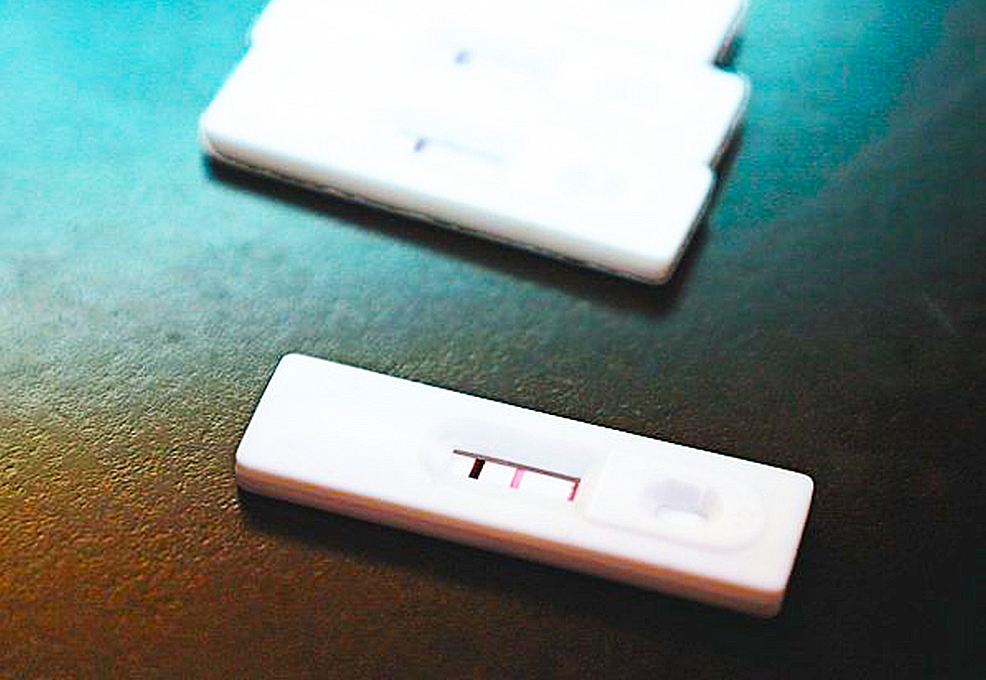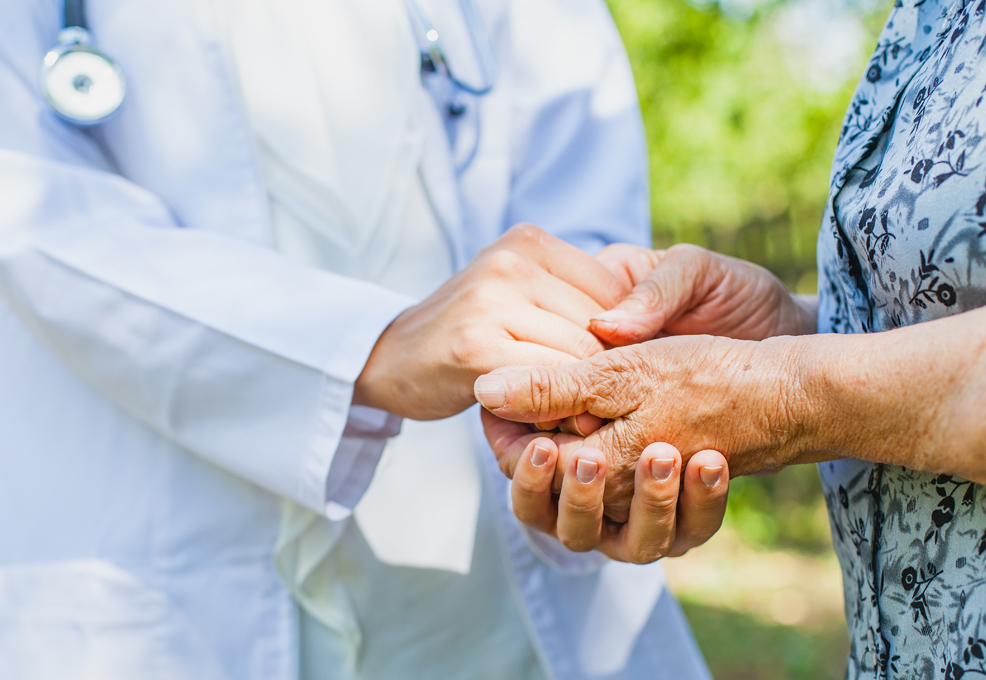Free to breathe: A new turning point of tracheal transplant
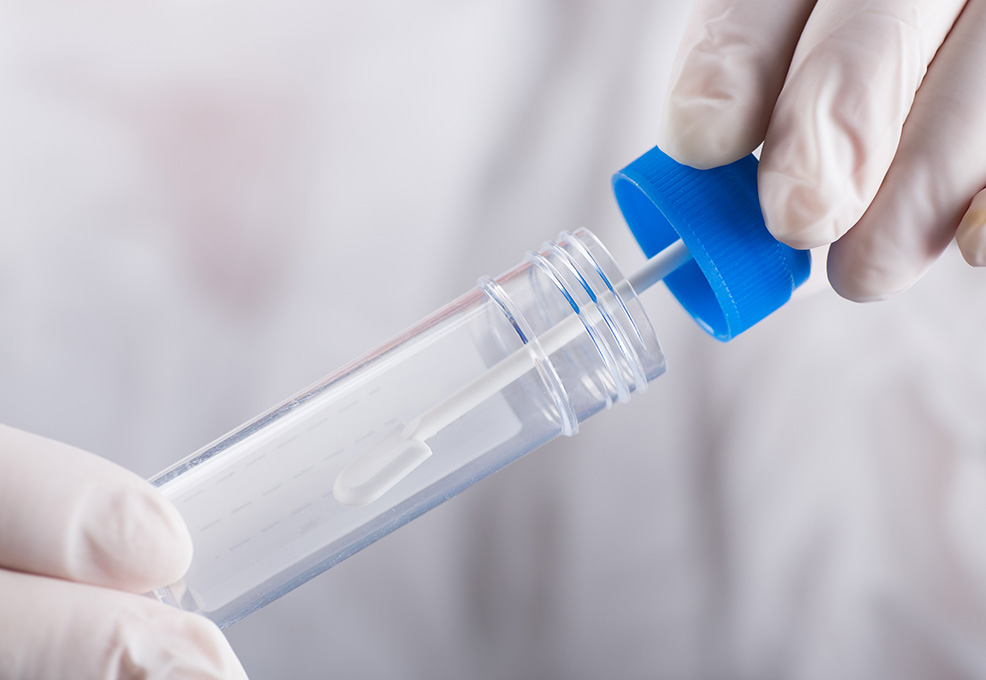
Author(s)
Cheng-Hsun ChiuBiography
Dr. Chiu is a professor of Pediatric Infectious Diseases and currently the vice president of Chang Gung Memorial Hospital, Chang Gung University College of Medicine in Taoyuan, Taiwan. Dr. Chiu’s research interests focus primarily on pediatric infectious diseases, antimicrobial resistance, vaccines, bacteria-host interaction, and emerging infectious diseases. Currently, at Chang Gung Memorial Hospital he leads the infection control committee and continues to pursue and expand his studies in microbial genomics, bacteria-host interaction, and microbiome and fecal microbiota transplantation.
Academy/University/Organization
Linkou Chang Gung Memorial Hospital-
TAGS
-
Share this article
You are free to share this article under the Attribution 4.0 International license
- LIFE SCIENCES
- Text & Image
- July 13,2021
Clostridium difficile (also known as C. difficile) is a bacterium that can cause symptoms ranging from diarrhea to life-threatening inflammation of the colon. C. difficile infections are most commonly developed in the elderly in hospitals or long-term care facilities and usually occur after the widespread use of antibiotics. Fecal microbiota transplantation (FMT) refers to the transferring of the microbiota in the feces of healthy donors to the patients’ gastrointestinal tract to improve imbalance of intestinal microflora and to treat malnutrition-related diseases.
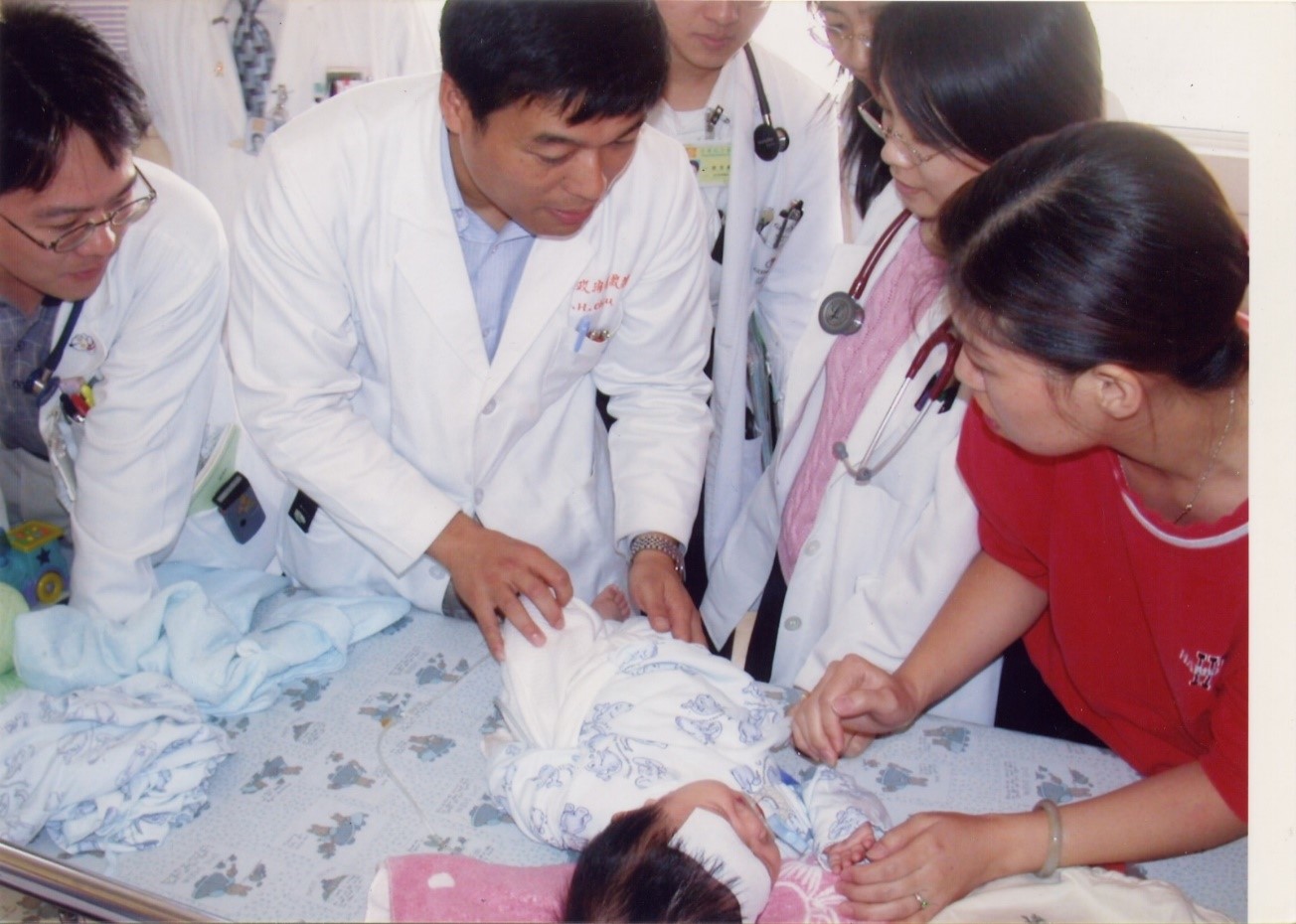
In September 2018, the Ministry of Health and Welfare issued the "Administrative Measures for the Implementation or Use of Specific Medical Technology, Inspection, Testing and Medical Instruments (referred to as Specific Medical Administrative Measures)", adding microflora implantation to treat severe or repetitive Clostridium difficile infection (rCDI). Dr. Cheng-Hsun Chiu, Vice Dean of the Linkou Chang Gung Memorial Hospital, said: "Pseudomembranous colitis and toxic Hirschsprung disease caused by Clostridium difficile usually have to be treated with more antibiotics such as vancomycin and mizonida. This may result in more severe drug-resistant Clostridium difficile bacteria, causing recurrence of the infection. In recent years, it has been found that FMT, as a more environmentally friendly and natural treatment, has better results and fewer side effects."
The Chang Gung Microbiota Therapy Center (CGMTC) is committed to clinical and translational research, with the goal of benefiting more patients in the future by applying the treatment to more diseases, such as various intestinal diseases, obesity, metabolic syndrome, cancer, and neurological diseases. The team in the Chang Gung Microbiota Therapy Center has published its accumulated experience as research papers in Biomedical J (2021), J Formos Med Assoc (2021) and N Engl J Med (2020).
The CGMTC has also signed a memorandum of cooperation with the Bioresource Conservation and Research Center (BCRC) of the Food Industry Development Research Institute to jointly develop a synthetic "precision microbial treatment" approach (probiotic cocktail therapy), promoting translational research with innovative technology (Figure 1). The focus of the research is on the mechanism of microflora and safety assurance, aiming to benefit more patients and promote national health. Vice Dean Cheng-Hsun Chiu, an essential promoter of this collaborative project, said: “BCRC is currently one of the few research institutions in the world that have research and development capabilities in both food and biological resources. We look forward to combining BCRC’s industry R&D technology and Linkou Chang Gung Memorial Hospital’s clinical and translational research in the field of microbial treatment, jointly developing microbial biologics or probiotic products which can be accurately used to treat different diseases caused by the imbalance of intestinal microbes."
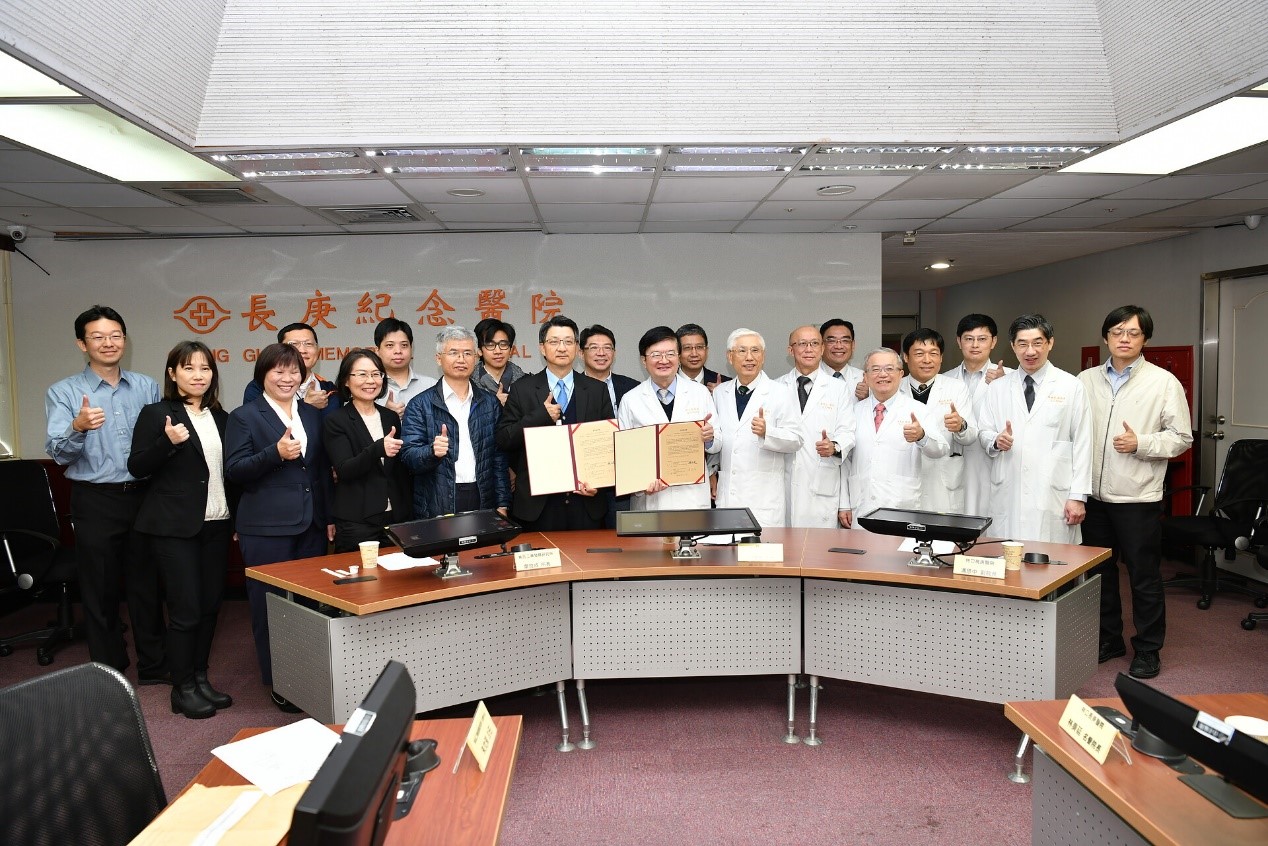
Figure 1. Memorandum of understanding between Chang Gung Microbiota Therapy Center (CGMTC) and Bioresource Conservation and Research Center (BCRC)
In recent years, substantial research has proved that intestinal microbial flora help regulate various biological functions and can affect health by regulating different physiological actions of the human body. With the development of the latest high-throughput sequencing technology, we are able to detect a multitude of species in the microbial community, and large-scale projects such as the Human Microbiome Project (HMP) and the Human Gut Microbiota (MetaHIT) have produced approximately 20 terabytes of microbiological data. However, the microbial and host data collected by these large-scale microbial feces projects do not include Asians or Taiwanese ethnic groups, and there are currently no fecal microbial database or standardized data analysis procedures in Taiwan. Seeing the need for such a database, Dr Cheng-Hsun Chiu began to lead the Chang Gung Memorial Research Team in 2018 to establish a database and analysis platform by collecting fecal bacteria of 1,000 healthy Taiwanese. The microbial database and analysis platform contributes specifically to Chang Gung’s studies of gut microbiota, allowing researchers to inquire and retrieve the distribution and types of microbial phases. Intelligent models are also used to identify marks related to bacterial infections, bacterial drug resistance, and bacterial mutations in order to help researchers process microbial sequencing data.
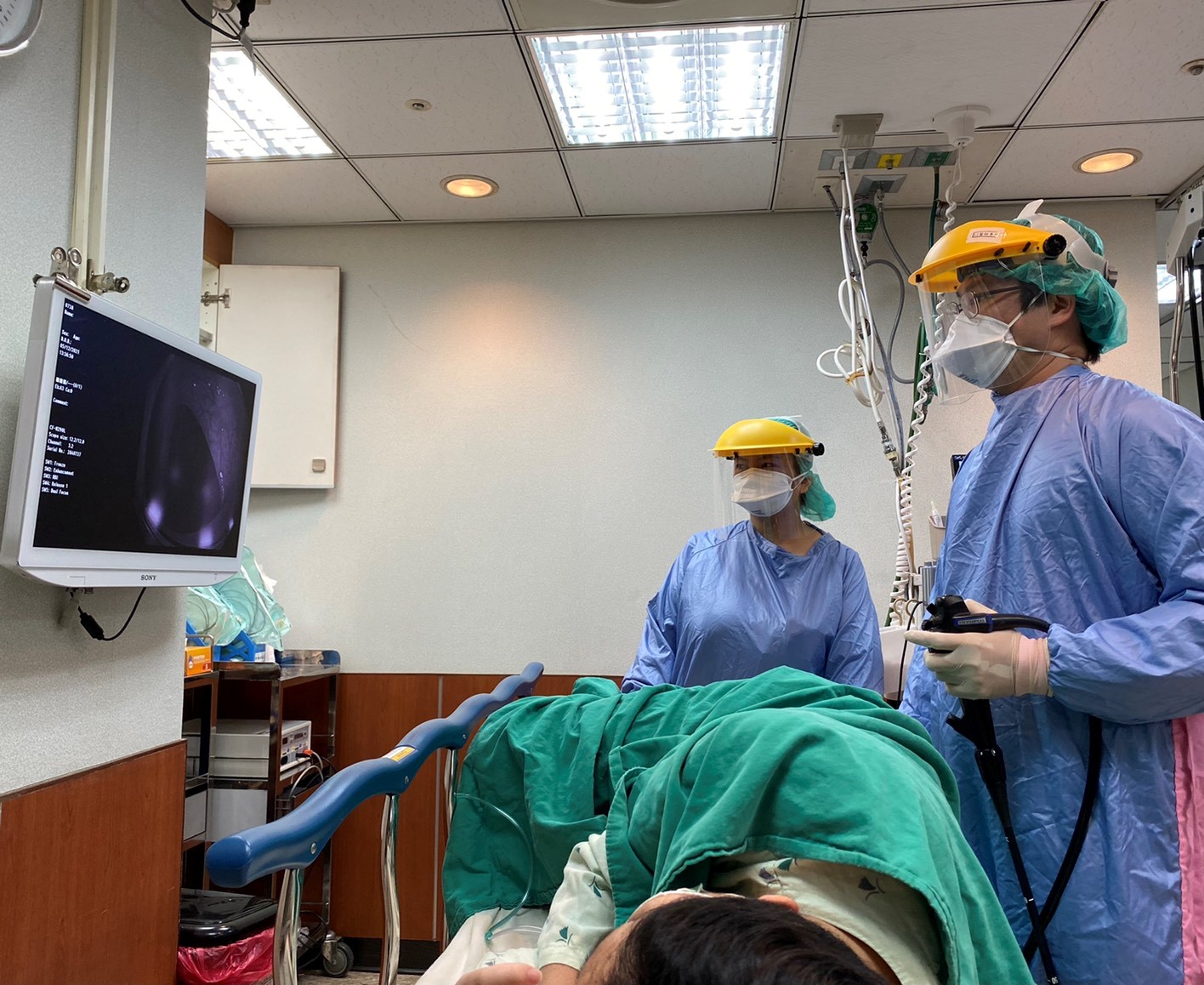
Figure 2. Fecal microbiota transplantation by Dr. Puo-Hsien Lee
Vice President Cheng-Hsun Chiu and Professor Cheng-Tang Chiu of the Department of Gastroenterology have been actively leading cross-departmental cooperation, including training young attending physicians to operate microflora implantation (Figure 2), educating research technicians to prepare microflora implants and microbial 16S rRNA sequencing, and building libraries. Experts in related fields are also invited to hold microflora implantation treatment training courses for physicians, medical examiners, and other operators who are interested in participating in the implementation of microflora implantation treatment. The course content includes microflora implantation treatment regulations, operation processes, venue management, domestic and foreign case analysis, and genetic sequencing and analysis of intestinal flora. Vice Dean Cheng-Hsun Chiu said: “I hope that more and more medical staff will invest in microflora implantation treatment. This is an environmentally friendly and natural treatment method, with tremendous positive curative effects proven by many overseas clinical studies, and is more cost-effective as compared with traditional antibiotic treatment." The Microbial Treatment Center will strengthen the promotion of this new medical technology to benefit more patients, and cooperate with the biomedical industry to move towards the direction of "precision microbial treatment" (Figure 3)
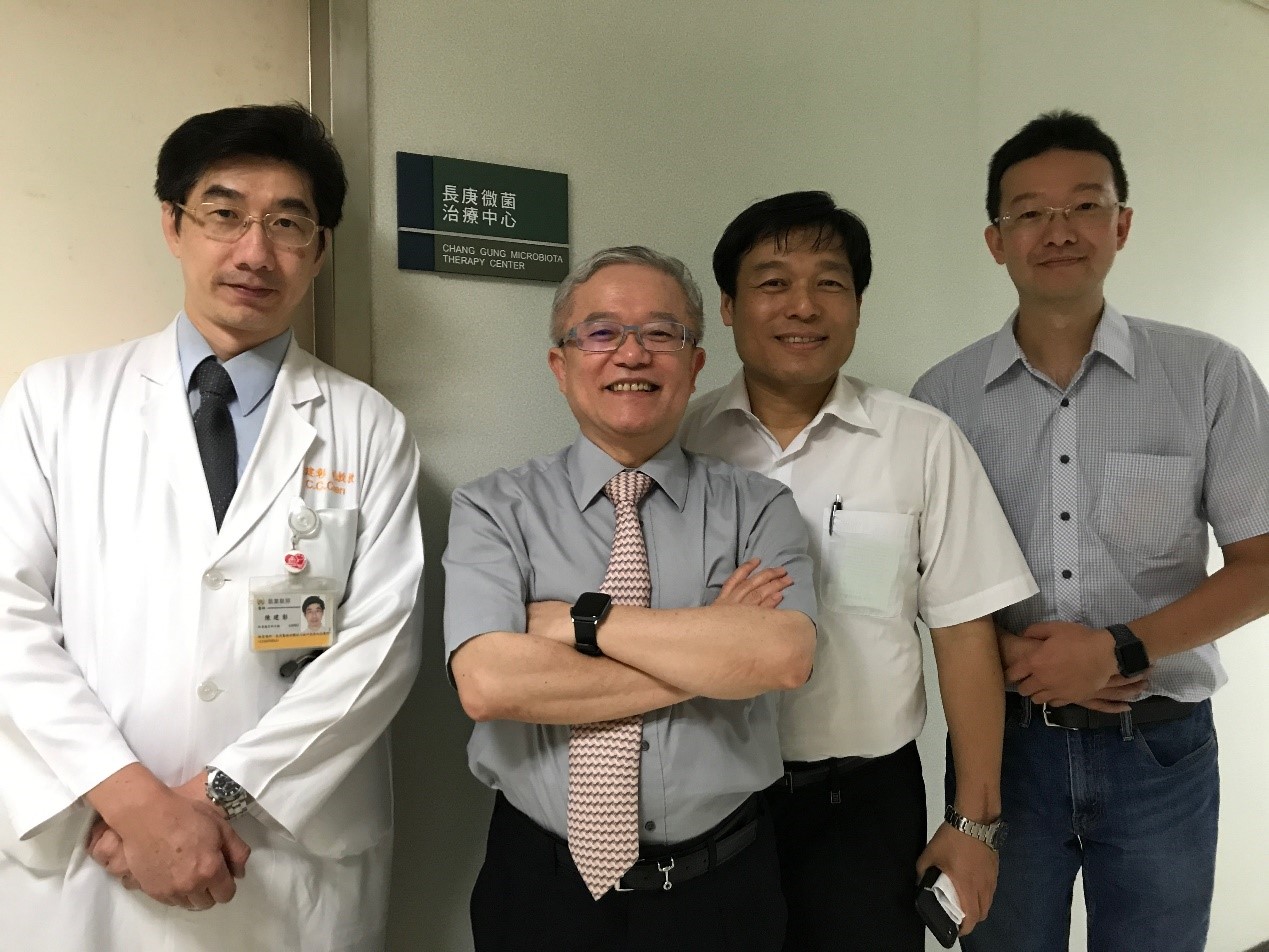
Figure 3. Key members of the Chang Gung Microbiota Therapy Center (from left to right: Dr. Chien-Chang Chen; Professor Cheng-Tang Chiu; Dr. Cheng-Hsun Chiu, Vice Dean; Dr. Yuan-Ming Yeh.)
STAY CONNECTED. SUBSCRIBE TO OUR NEWSLETTER.
Add your information below to receive daily updates.



